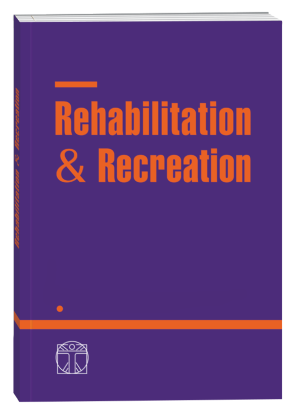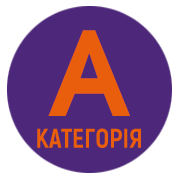OVERCOMING POST-TRAUMATIC STRESS DISORDERS IN THE CONDITIONS OF THE LEGAL REGIME OF THE MARTIAL STATE
DOI:
https://doi.org/10.32782/2522-1795.2024.18.3.17Keywords:
fitness, fitness technologies, post-traumatic stress disorder, aerobics, rehabilitation, Rehab Fitness, martial lawAbstract
The article reveals the problem of overcoming post-traumatic stress disorders in the conditions of the legal regime of martial law by means of fitness technologies, the relevance of which we associate with the need to provide rehabilitation assistance to war veterans, members of their families, participants in hostilities and people who suffered in the occupied territories of Ukraine as a result invasion of Russian invaders and have the status of internally displaced persons. Purpose. The purpose of the research is the development, scientific substantiation and experimental verification of the effectiveness of a complex program of rehabilitation fitness technologies (Rehab Fitness) to overcome post-traumatic stress disorders in war veterans, participants in hostilities, people who suffered in the conditions of war, which will ensure the restoration of their mental health, self, mental well-being and will improve quality of life. Material. The research methodology was based on the use of the method of conceptual and comparative analysis, methods of structural and system analysis and modeling. Findings. Post-traumatic stress disorder is interpreted as a mental disorder that develops after a person has experienced or witnessed traumatic events, such as: war, accident, crime, natural disaster. The study focused on post-traumatic stress disorders caused by the state of war in Ukraine. During the research, a comprehensive program of rehabilitation fitness technologies (Rehab Fitness) was developed to overcome post-traumatic stress disorders. The main focus of the Rehab Fitness experimental program is on the application of fitness technologies based on the use of types of aerobic and strength-oriented motor activity, fitness technology with elements of martial arts, and fitness technologies with a mental-regulatory focus. Conclusions. Experimental studies show that the training of persons with post-traumatic stress disorders, according to the experimental program of fitness technologies (Rehab Fitness), had a positive effect on their mental health, which was confirmed by indicators of psychophysiological characteristics of a person (speed and accuracy of visual information processing, volume, concentration and distribution of attention, productivity coefficient, level of mental stability, level of concentration of attention based on the number of processed numbers) and indicators of their situational anxiety.
References
Качан О.А. Упровадження інноваційних технологій у фізкультурно-оздоровчу та спортивну діяльність закладів освіти. Слов’янськ, 2017. 138 с.
Корносенко О.К. Роль фітнесу в системі оздоровчої фізичної культури. Вісник Чернігівського національного педагогічного університету. Серія: Педагогічні науки. Фізичне виховання та спорт, 2013. № 112(3). С. 228–232.
Круцевич Т.Ю. Теорія і методика фізичного виховання : підручник для студ. вузів фіз. вихов. і спорту: в 2 т. Т. 2. Методика фізичного виховання різних груп населення. Київ, 2008. 368 с.
Товт В.А., Сивохоп Е.М., Маріонда І.І., Сусла В.Я. Теорія і технології оздоровчо-рекреаційної рухової активності. Ужгород, 2015. 88 с.
Школа О.М., Журавльова І.М. Теорія та методика навчання: аеробіка. Харків, 2014. 265 с.
Goldstein R.B., Smith S.M., Chou S.P. The epidemiology of DSM-5 posttraumatic stressdisorder in the United States: Results from the National Epidemiologic Survey on Alcohol and Related Conditions-III. Soc. Psychiatry Psychiatr Epidemiol, 2016. 51(8). Р. 1137–1148.
Emetc A., Zhamardiy V., Sohokon O., Khyzhniak O. Formation of project competence of future specialists from the field of physical therapy, physical education and sports in the higher education system. Journal for Educators, Teachers and Trainers, 2022. 13(2). Р. 260–269.
Howard R., Berry K., Haddock G. Therapeutic alliance in psychological therapy for posttraumatic stress disorder: A systematic review and meta-analysis. Clin Psychol Psychother, 2022. 29(2). Р. 373–399.
Rybalko L., Onishchuk L., Hulko T., Yo pa T., Zhalii R., Ostapov A., Horhol V. Рreparation of future specialists in physical culture and sports with an aim of preserving and restoring physical and mental health of individuals. Acta Balneol, 2023. VOL. LXV. 6(178). р. 401–405.
Rybalko L., Yopa T., Hagner-Derengowska M., Kałużny K., Demkiewicz D., Muszkieta R., Ostrowska M. Motor activity as an indicator of a healthy way of life. Journal of Physical Education and Sport, 2021. Vol 21, Art 374. Р. 2813–2819.
Synytsya T., Synytsya S., Rybalko L., Kornosenko O., & Zhamardiy V. Evaluation of sports achievements of participants in cheerleading competitions by rationalizing refereeing. Revista Românească pentru Educaţie Multidimensională, 2023. 16(1), р. 326–342.
Wright L.A., Sijbrandij M., Sinnerton R. Pharmacological prevention and early treatment of post-traumatic stress disorder and acute stress disorder: A systematic review and meta-analysis. Transl Psychiatry, 2019. 9(1), р. 389–411.
Downloads
Published
How to Cite
Issue
Section
License
Copyright (c) 2024 Л. М. Рибалко, В. О. Жамардій, А. Л. Замахін

This work is licensed under a Creative Commons Attribution-NonCommercial-NoDerivatives 4.0 International License.












